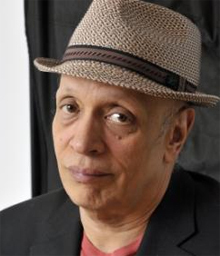date newest »
newest »
 newest »
newest »
 I have long been a fan of Mr. Mosley's work. I am a bit perplexed by his statement, though I assume it is the mark of a gifted person to phrase statements in such a way as to promote others to engage in the discussion.
I have long been a fan of Mr. Mosley's work. I am a bit perplexed by his statement, though I assume it is the mark of a gifted person to phrase statements in such a way as to promote others to engage in the discussion.Purely from a point of information, does the statement about 'white race' also mean there is no 'black race'? One would think that is implied by the "There is no race" statement. In which case, I agree. We are all of the Human Race.
I'm a bit hesitant to embrace the notion that all racism would end if 'white' people would drop that 'fallacious appellation'. While that would certainly go a very long way to promoting harmony, this step alone will not end racism. This step must be accompanied by the same actions of equal measure by ALL people.
 From my perspective, and as I interpret my experience, claims by white people that we are in a post-racial world are often a dodge to avoid difficult conversations on race. The provocation, "That depends, do you believe you are white" forces the person to consider a question through the lens of race, and process how identifying with the group called white might signal that we are still in a racial world. If not the group white, then with what group do you identify? (The response, "the human race" is often another dodge.)
From my perspective, and as I interpret my experience, claims by white people that we are in a post-racial world are often a dodge to avoid difficult conversations on race. The provocation, "That depends, do you believe you are white" forces the person to consider a question through the lens of race, and process how identifying with the group called white might signal that we are still in a racial world. If not the group white, then with what group do you identify? (The response, "the human race" is often another dodge.)Fred writes, "This step must be accompanied by the same actions of equal measure by ALL people". A fair statement, I opine, as long as there is some recognition that all people (and by this I mean all [racial] groups of people) do not have the same amount of social power. The group I belong to (white males) has a number of social advantages that I have benefited from over the years. Some unequal measure seems to be in order since I have enjoyed unequal advantages.





Part of my research for our work was tracing race laws in America (the legal dimension of creating the white race) starting in N Virginia in the mid to late 1600s and early 1700s. Those laws contained elements of both race and class.
Mosley's question - "That depends, do you believe you are white" - is as provocative as it is vague.
Provocative insofar as it is a question that is personal (that is, the person to whom it is addressed understands it is meant to be answered personally), ambiguous (to the extent that one cannot just download a prior thought and move on) and anxiety provoking (in the sense that it takes whites into uncommon, possibly uncharted, territory and poses a risk). The question requires people to move along in thought.
Vague in the sense that for many white people (in my experience) their social standing is just normal, is not in and of itself very interesting, and absent engaging in individual acts of meanness toward peoples of color, they consider themselves kind and respectful people. It is a difficult leap to see themselves as part of a system that confers advantages to them. Even when that awareness surfaces the notion that one's advantage is gained from another's disadvantage poses a real dilemma, since it can only be rectified (as they tend to see it) through some process of leveling, which is commonly seen as giving something up.
I have long appreciated Mosley's work. The most powerful for me have been the Socrates Fortlow series. Fortlow tells his story from the other side of "That depends, do you believe that you are white" and in so doing provokes questions that beg reflection and often lead to insight.
Even as I write here I am appreciating the power of Mosley's question. I expect to find a place for it in our work.